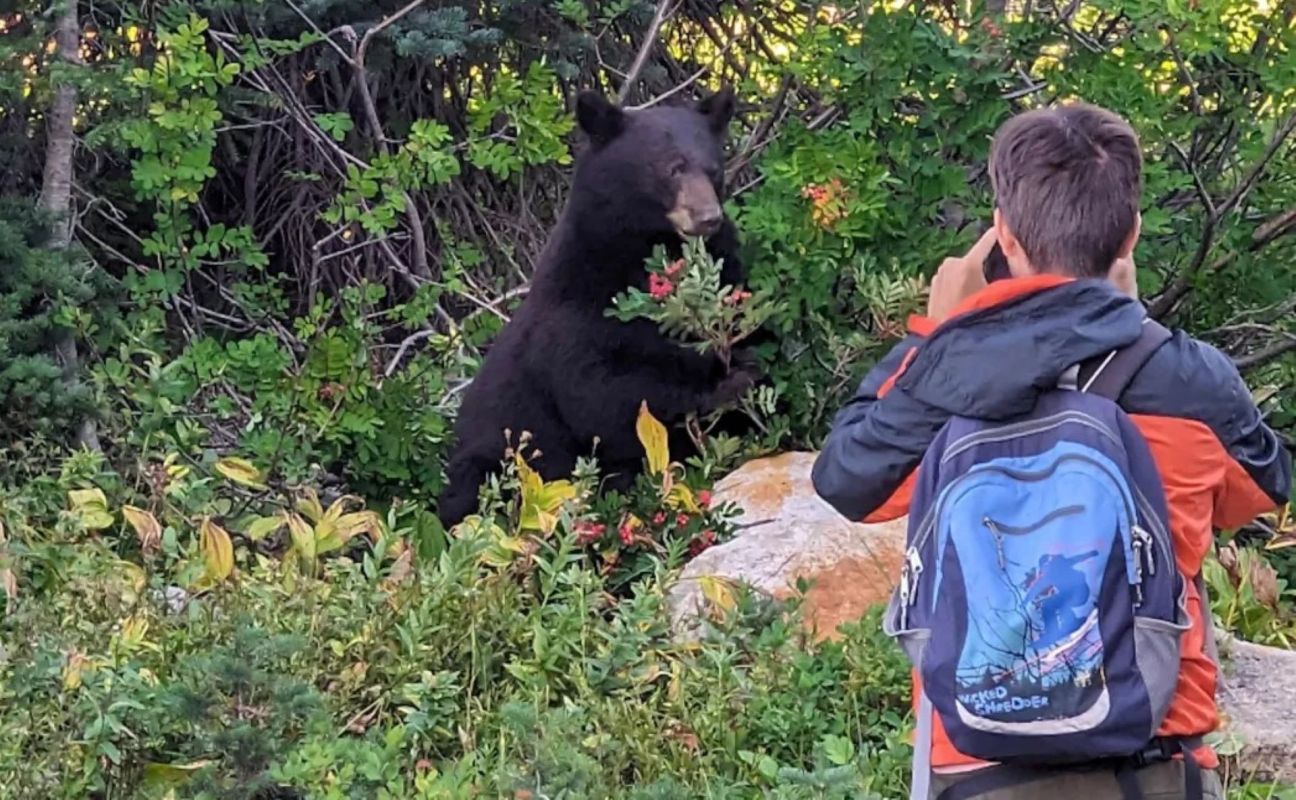It should go without saying that you should keep your distance from wild animals — especially in national parks where there are signs and warnings galore. And yet, the conversation continues.
A recent snapshot posted to the r/NationalPark subreddit with the caption "Don't be this guy" is another unfortunate example of ignorance when it comes to wildlife.
A young touron (tourist plus moron) is less than 10 feet away from a black bear for a very dangerous photo op.
Above the photo, the Redditor asked, "Do you know how fast a bear can run?"
A black bear, while slower than a grizzly, can reach speeds up to 30 miles per hour. To put that into perspective, Usain Bolt at his fastest reached 27.78 miles per hour. So the answer to the question is … faster than you.
Whether individuals approach wildlife because of genuine curiosity, adoration, or "for the gram," many people forget in their excitement that these are wild animals. Never approach wildlife under any circumstance.
Yellowstone Park recommends staying 100 yards away from bears and wolves. All other wildlife should be kept at 25 yards or more. In any case, it's always wise to be more cautious than not.
Being reckless and entitled is a danger to yourself and the animals, who could be euthanized if they interact with and injure humans. It's also disheartening and stressful to those who care about protecting and preserving the relationship between humans and the natural world, including the park rangers.
Respect for nature and wildlife is closely linked to respect for the greater environment. Educate yourselves and join the fight to protect the natural world.
Maintain safe distances and take note of the signs and regulations to keep you, your loved ones, and the wildlife safe. Failure to do so could result in fines, injury, or even death.
Leave wildlife wild, and don't be a touron.
"That guy has a death wish," one person commented.
Another Redditor said: "Worked at MORA for several years and black bears are a common sight at Paradise. People taking photos of them very close is also, sadly, a common sight."
Join our free newsletter for cool news and cool tips that make it easy to help yourself while helping the planet.









